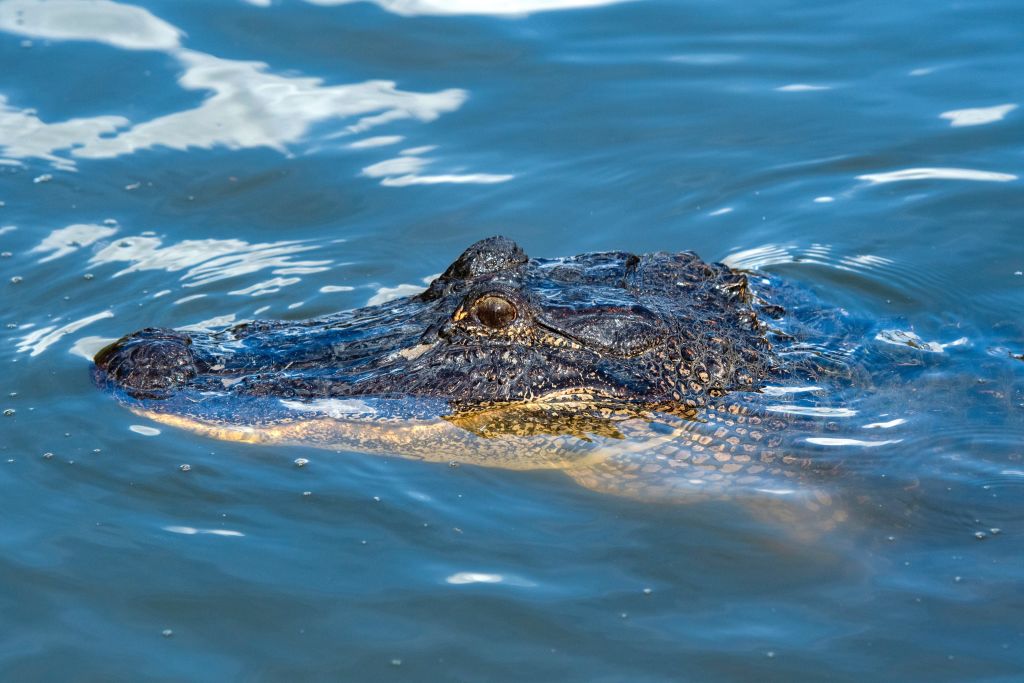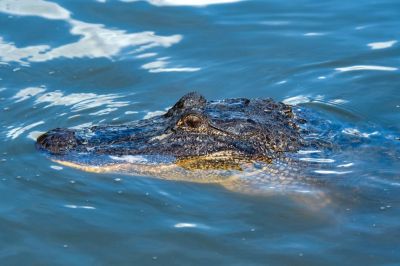On March 15, 2024, 50 Louisiana National Guard personnel arrived in Texas to support the state’s border security operation. Louisiana is one of multiple states to send national guard members to Texas amid a clash between the Biden administration and Texas Gov. Greg Abbott over border protection.
But a viral social media image suggests that conventional National Guard members are not the only personnel being sent to the Lone Star State. The photo depicts a congregation of tactically outfitted alligators, allegedly en route to the U.S.-Mexico border.
Though this would not be the first time that militaries have utilized animals for border security—The Dispatch Fact Check previously covered the use of birds in military operations— alligators are not in fact being deployed to Texas. A close examination of the image reveals multiple photographic—and biological—abnormalities. Most alligators in the picture have six legs, two more than the zoological consensus of just four legs per gator. The image, which first began circulating in late February, is either generated with artificial intelligence (AI) or otherwise doctored.
“Not only do the legs and feet look unnatural, but the sides of the body are entirely too uniform and have scales that don't look natural,” Dr. Jeff Tamplin, a professor of biology at the University of Northern Iowa and caretaker of the university’s resident alligator, Steve, told The Dispatch Fact Check. “The lateral trunk/abdominal areas of American alligators have a variety of scales (technically called scutes) of different sizes. Those in the photo appear too parallel, rigid, and too uniform to be from an undoctored photo or a non-AI-created source.”
Tamplin also believes that alligators would not be the most effective border agents. “If the Louisiana National Guard wants to use a more aggressive species of crocodilian to deter border crossings, they would be better off importing Nile Crocodiles (Crocodylus niloticus) and/or Saltwater Crocodiles (Crocodylus porosus),” he said. “Both of those species are much more aggressive than the usually docile American alligator.”
The Louisiana National Guard did not respond to a request for comment.
If you have a claim you would like to see us fact check, please send us an email at factcheck@thedispatch.com. If you would like to suggest a correction to this piece or any other Dispatch article, please email corrections@thedispatch.com.







Please note that we at The Dispatch hold ourselves, our work, and our commenters to a higher standard than other places on the internet. We welcome comments that foster genuine debate or discussion—including comments critical of us or our work—but responses that include ad hominem attacks on fellow Dispatch members or are intended to stoke fear and anger may be moderated.
With your membership, you only have the ability to comment on The Morning Dispatch articles. Consider upgrading to join the conversation everywhere.